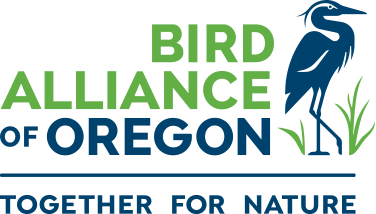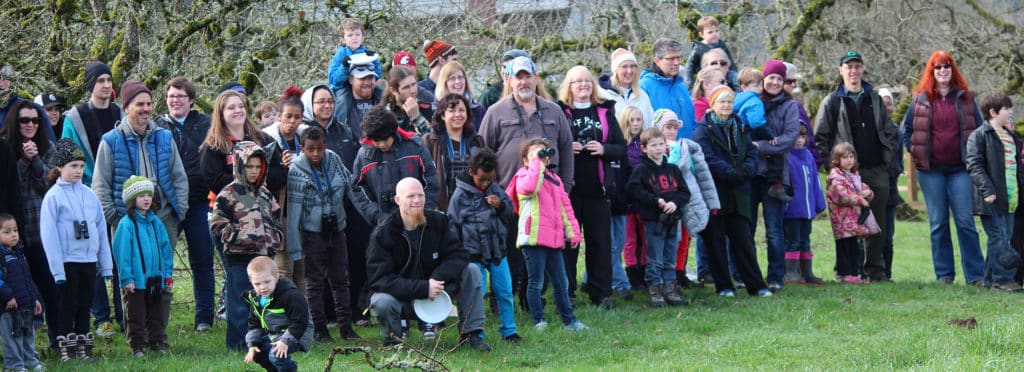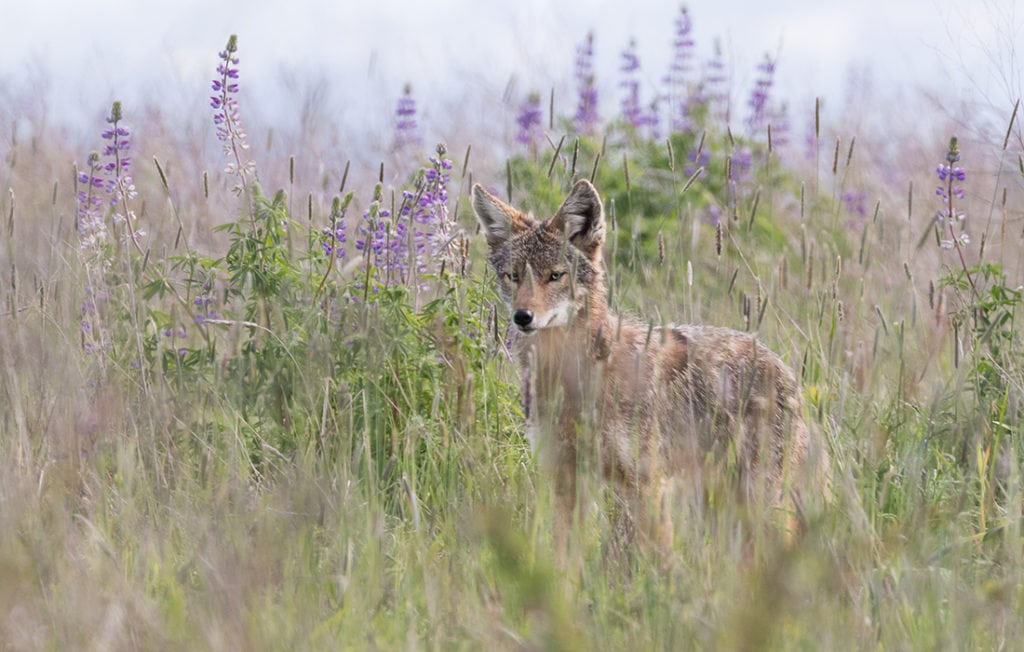
“We aim to engage all community members in caring for the water, air and wildlife around us. We live in an incredibly diverse region, and we can each support that diversity by taking small steps to care for our yards in sustainable ways,” said Susie Peterson, Backyard Habitat Program Manager for the Columbia Land Trust.
The Backyard Habitat Certification Program is offered to private residences (under 1 acre) as well as schools, public institutions, and businesses – any place with a yard. For $35, a Habitat Technician will visit participants’ yards to identify noxious weeds and suggest beneficial native plants and other features that will attract and support birds, beneficial insects, and other wildlife. Recommendations are tailored to each participant’s yard and interests. Participants also receive other perks such as discounted prices on native plants, coupons to local garden centers, follow-up technical assistance, and certification signs to display in their yard.
“Just one yard may not seem like much when it comes to protecting habitat, but there are more than 3,650 urban and suburban yards in this program, and together they make a real difference for our region’s wildlife,” said Nikkie West, Backyard Habitat Program Manager for the Bird Alliance of Oregon. “Through this program, every yard and every gardener can play a meaningful role in revitalizing our region for birds, pollinators, and other wildlife.”
On Monday, March 27th, the program celebrated its first certification visit in the yard of Lisa Batey, President of the Milwaukie City Council, whose yard was awarded Silver certification.
Jordan Imlah, with the City of Milwaukie, said “Milwaukie is in an incredible location with the Willamette River and so many creeks nearby, and the Backyard Habitat program can help residents beautify their homes in cooperation with those natural resources. The program has so many aspects that the community can benefit from—reductions in pesticides and invasive plants, better stormwater management and improved bird stewardship. The city is delighted to partner with Backyard Habitat to bring this incredible project to Milwaukie.”
The program can serve residential properties up to one acre in size. We work on larger properties, such as a school or church, in coordination with the Clackamas Soil and Water Conservation District. “Clackamas Soil and Water Conservation District is very pleased to support the Backyard Habitat Certification Program,” said Tom Salzer, General Manager of the Clackamas Soil & Water Conservation District. “This program provides consistent service to our urban constituents that benefit wildlife, homeowners, and the community. It is a tremendous addition to Clackamas County!”
Columbia Land Trust and the Bird Alliance of Oregon have co-managed the Backyard Habitat Certification Program since 2009. The program originally began in the City of Portland, but expanded into Lake Oswego in 2011, and into Gresham and Fairview in 2015. It fosters environmental stewardship by empowering participants to become urban conservationists and to preserve important wildlife habitat. This new partnership increases service by providing a full-time technician to the area, and the program is also tailored to local ecosystems.
“It is really exciting to see the Backyard Habitat Certification Program’s expansion into Clackamas County. Their efforts to promote native and non-invasive wildlife friendly landscapes in our urban areas closely match our existing goals and efforts,” said Sam Leininger, Clackamas SWCD WeedWise Program Manager. “This expansion of the Backyard Habitat Certification Program provides an additional resource for our urban landowners to take tangible steps to promote wildlife habitat on their properties.”
For more information, visit www.backyardhabitats.org
About Columbia Land Trust
The mission of Columbia Land Trust is to conserve and care for vital lands, waters, and wildlife of the Columbia River region. Since 1990, the Land Trust has conserved 32,000 acres of natural areas, farm and ranchlands, forests and critical habitat in the Pacific Northwest. Collaborating with ranchers, farmers, orchardists, conservationists, foresters, public agencies, and individuals who share a commitment to our region’s precious resources and landscapes, Columbia Land Trust is committed to conserving the Northwest you love. To learn more, visit www.columbialandtrust.org or call 360-696-0131.
About Bird Alliance of Oregon
Founded in 1902, Bird Alliance of Oregon is one of the oldest conservation organizations in the nation. It promotes the understanding, enjoyment and protection of native birds, other wildlife and their habitats through its conservation and environmental education programs, its 150-acre Nature Sanctuary and Nature Store in northwest Portland, and its Wildlife Care Center.
For more information, call 503-292-6855 or visit birdallianceoregon.org.
About the Clackamas Soil & Water Conservation District
The Clackamas Soil and Water Conservation District (SWCD) is a special district that provides technical assistance and support to Clackamas County residents encouraging conservation and sustainable use of our natural resources. Issues with water quality and invasive weeds adversely affect wildlife, working lands, and natural areas, which in-turn affects the livability of our communities. Solutions to these resource concerns are rarely limited to a single parcel, so we work together with neighbors, communities, and watersheds. Landowners should contact the Clackamas SWCD for assistance in implementing conservation practices such as managing invasive weeds and protecting streams and rivers by planting vegetation to reduce soil erosion and provide wildlife and water quality benefits.
For more information, visit www.conservationdistrict.org.



